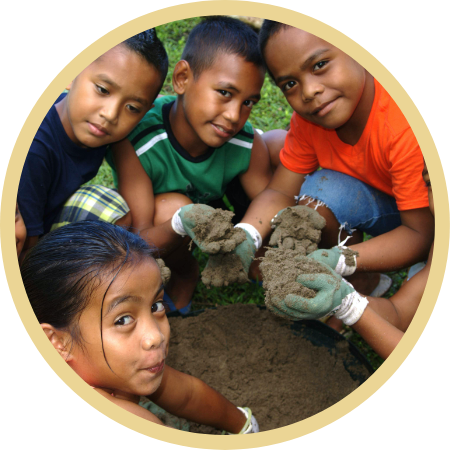
PREL is an independent, nonprofit organization with staff in Hawai‘i, American Sāmoa, the Commonwealth of the Northern Mariana Islands, Guam, the Republic of the Marshall Islands, the Republic of Palau, and the Federated States of Micronesia: Chuuk, Kosrae, Pohnpei, and Yap. Through our work, we collaborate with schools and school systems, families, community organizations, and government agencies to transform education and promote dynamic reciprocal learning communities built on strong social and cultural capital.
Strategic Priorities
- Conditions for Learning for Youth & Young Adults: Promoting academic and/or career and technical achievement for Pacific youth
- Early Learning: Supporting early learning and development programs for children from birth to age 8
- Languages & Learning: Addressing multilingual proficiency through language education policies and practices, as well as language proficiency standards and assessments
- Ecoliteracy: Transforming understandings of the natural world into active and positive impacts on our environment
- Health Literacy: Collaborating on research and culturally responsive health interventions that focus on youth development, school success, and well-being
Our Approach
PREL’s approach to education is asset-driven and highly customized to meet the needs of our partners. Our staff brings a wealth of expertise in bilingual education, career and technical education, early childhood education, educational equity, literacy, mathematics, science, standards and assessment, and teacher and leadership development.
We generate impact by fostering collective action and we focus on building capacity rather than dependence, on being a trusted inside collaborator rather than an outside instructor. These approaches reflect our respect for local cultures and understanding of existing capacity, and it allows our work and partnerships to enhance local capacities and engender greater sustainability in policies and practices.
